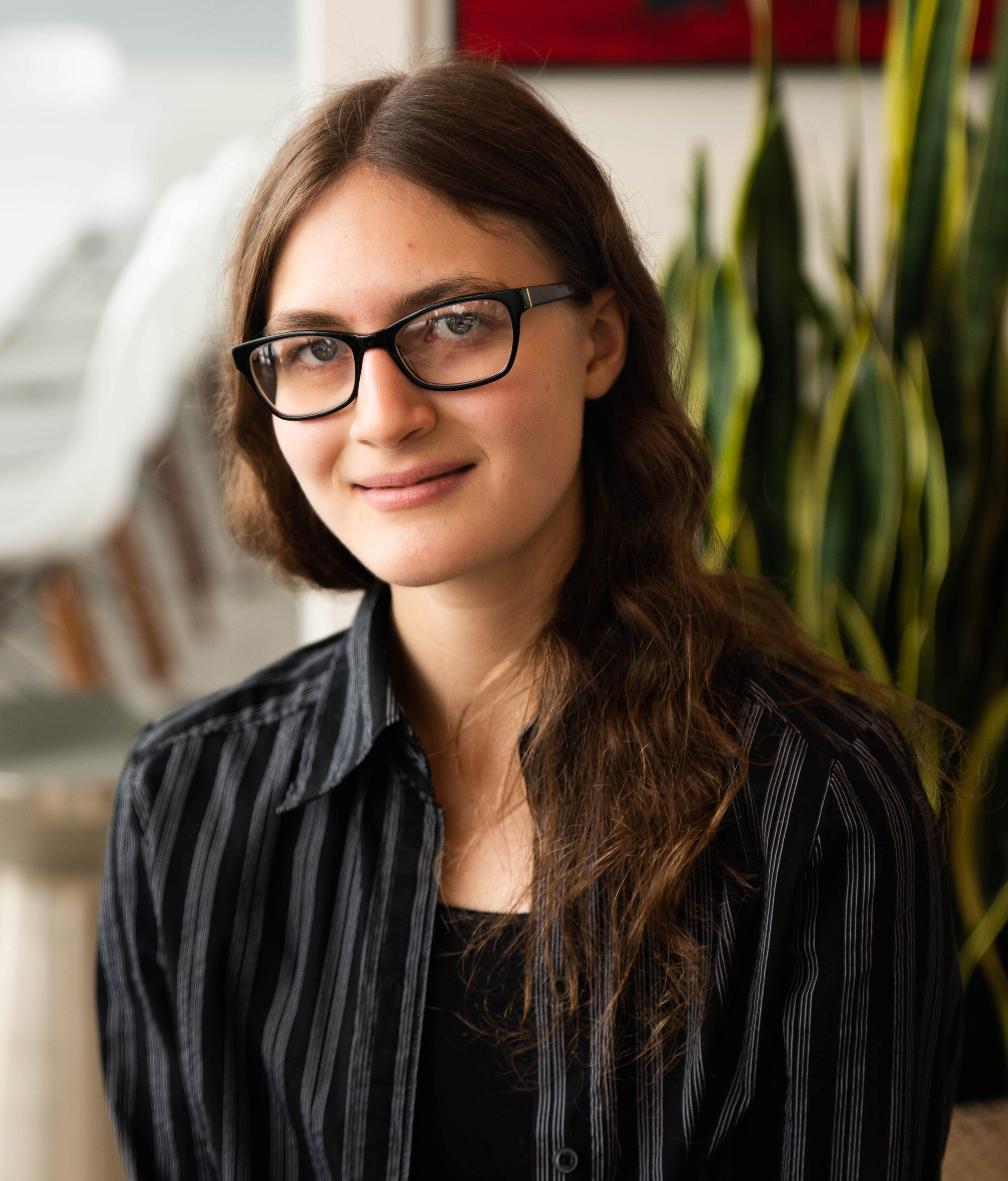Pictured above: Tovah Strong, winner of the 2021 Glasgock Poetry Contest. Image courtesy of the Glasgock Poetry Contest.
By Amelia Scarponi ’23
Staff Writer
Mount Holyoke held the 98th Kathryn Irene Glascock Intercollegiate Poetry Contest from March 25 to March 27. Normally held in Gamble Auditorium, this year’s competition was held virtually on Zoom due to the ongoing COVID-19 pandemic. The first day of the event was dedicated to a conversation with the judges. The event was intentionally set to “meeting” instead of “webinar” style, allowing the poets to better connect with the audience as they answered questions.
The competition was established at Mount Holyoke in 1923 and became open to other colleges in 1924 to honor Kathryn Irene Glascock, class of 1922, a published poet and member of the Mount Holyoke News. Glascock died of pneumonia shortly after graduating.
This year’s Glascock Committee included several faculty members: Assistant Professor of English Andrea Lawlor, Assistant Professor of English Anna Maria Hong, Associate Professor of English and Chair of Critical Social Thought Kate Singer and Visiting Lecturer in English Samuel Ace. The committee also consisted of six Mount Holyoke students. The committee decides which schools will be invited to participate, selects the judges and introduces the judges and contestants at each event.
Each year undergraduate students are nominated by faculty members to submit their poetry, which they then read aloud for a panel of three poets. Some past judges include William Carlos Williams, W.H. Auden and Audre Lorde.
This year’s judges included Kay Gabriel, a poet and essayist who co-edited “We Want It All: An Anthology of Radical Trans Poets”; Fred Moten, a poet and professor in the department of performance studies at the NYU Tisch School of the Arts; and Cameron Awkward-Rich, author of two collections of poetry, “Sympathetic Little Monster” and “Dispatch.” Awkward-Rich is also the assistant professor of women, gender and sexuality studies at the University of Massachusetts Amherst.
The competitors were Mount Holyoke’s Alejandra Cabezas ’21; Julia Kudler, a senior at the University of Washington at Seattle; Meredith Luchs, a senior at Hampshire College; Felicia Payomo, a senior at Mills College; Wafa Shaikh, a sophomore at Houston Community College; and Tovah Strong, a senior at the Institute of American Indian Arts.
Before the judges introduced the poets, Hong invited everyone to join her in a moment of silence for victims of gendered, racialized and gun violence.
Cabezas was the first poet to take the virtual stage, introducing her poems “What My Name Sounds Like” and “Pillbox,” among others. According to the competition’s website, “her work is concerned with family histories, the Mayan cosmovision, and movement across Mesoamerica.” The judges noted that her performance was “theatrical, tangible, loud and in real time.” In addition to writing poetry, she is a wildlife advocate who is actively working to save sea turtles and yellow-naped parrots along the Salvadoran coast. Cabezas graduates from Mount Holyoke this spring with a double major in English and ancient studies.
Payomo, the second poet, read poems including “Lost Year” and “Between Sheets of Sand.” In her competition biography, she revealed that her poetry is an exploration of the self and hopes her work will help readers feel seen. Awkward-Rich commented on Payomo’s poems, noting, “You are — and know that you are — a poet of the self, a poet who deeply feels and writes beautifully toward that vexed relation between yourself and the world.”
Kudler read next, capturing the audience with a poem detailing the California wildfires, appropriately titled “California Is Burning.” She has loved stories and language since her childhood and has spent most of her life constructing and sharing narratives. Members of the audience erupted into silent applause during her final piece, “On Entropy,” in which she read, “The earth is nothing more than the memory of dead stars.” Moten said in praise, “These poems are daring and sure in their voicing and arrangement.”
Luchs, the fourth reader, took to the virtual stage, saying, “I’m so nervous, I didn’t know my heart could beat this fast.” One of their poems, “Crude Habitat,” an ode to nature, struck a chord with multiple audience members who commented in the chat about the line “life just wants something to gather around.” The judges appreciated their impeccable poetic architecture. “You are clearly a poet who watches carefully, who listens with their whole body,” they noted. Luchs is currently working on a book-length collection of poems focused on living in the era of climate change and will be starting their MFA in poetry at Warren Wilson College next winter.
The next poet, Strong, began by reading “My Mother’s Orchestra,” captivating the audience with her word choice and use of alliteration in lines like “body bent long, like a half bowl, pink sweater bright like tail feathers.” She pronounced each word softly with careful precision. Strong is studying creative writing with an emphasis on poetry but writes prose as well. Her work has appeared in the Tribal College Journal, Searchlight New Mexico and other publications.
Shaikh, the sixth and final poet, gave a content warning for sexual assault and incest in case some audience members preferred to mute their device during her reading. Her poem “Dirty Dishes” dealt with those themes in a raw and honest manner. Moten commented, “Your lyricism is bravery.” Shaikh is a creative writing major who helped start her campus’s literary magazine HTX LIT. She is also the president of her college’s creative writing club for the 2020-2021 school year. Her first publication is in Defunkt Magazine.
On Saturday, March 27, the final day of the event, the winner was announced live via Zoom after the judges read several of their own poems. The winner was Strong of the Institute of American Indian Arts. Lawlor was the first to congratulate Strong, while members of the audience gave a loud round of applause by unmuting their mics. Strong expressed her thanks through the chat function, writing, “Thank you, everyone, I don’t have words!”

